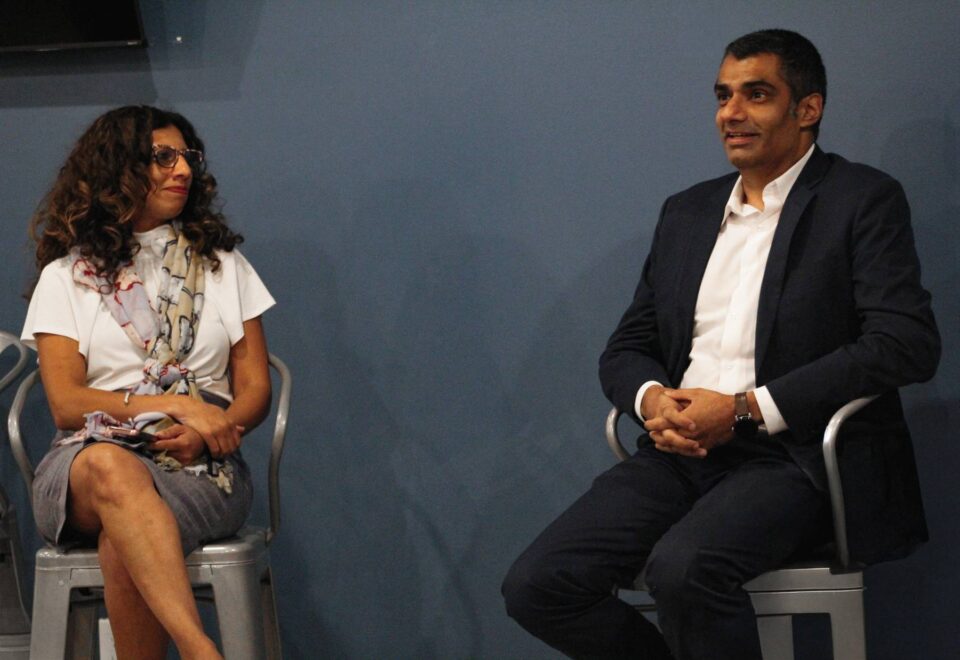BY VEENA RAO*
Alpharetta, GA, September 2, 2025: The spotlight was on Samir Idnani, co-founder and CFO of NaanStop at an interactive Fireside Chat hosted by Storytellers Table and its founder, Neha Negandhi at Tech Alpharetta on August 26, 2025.
Idnani shared his journey from a childhood in Nashville to running three thriving restaurants in Atlanta. Several Atlanta-area entrepreneurs, community members, and aspiring leaders joined the event to hear Idnani’s inspiring story.
Storytellers Table is a monthly forum where leaders learn to speak with clarity, confidence, and heart while also learning from an invited speaker. Negandhi, a seasoned public speaking coach, empowers executives, nonprofit leaders, and rising stars through storytelling and presence.
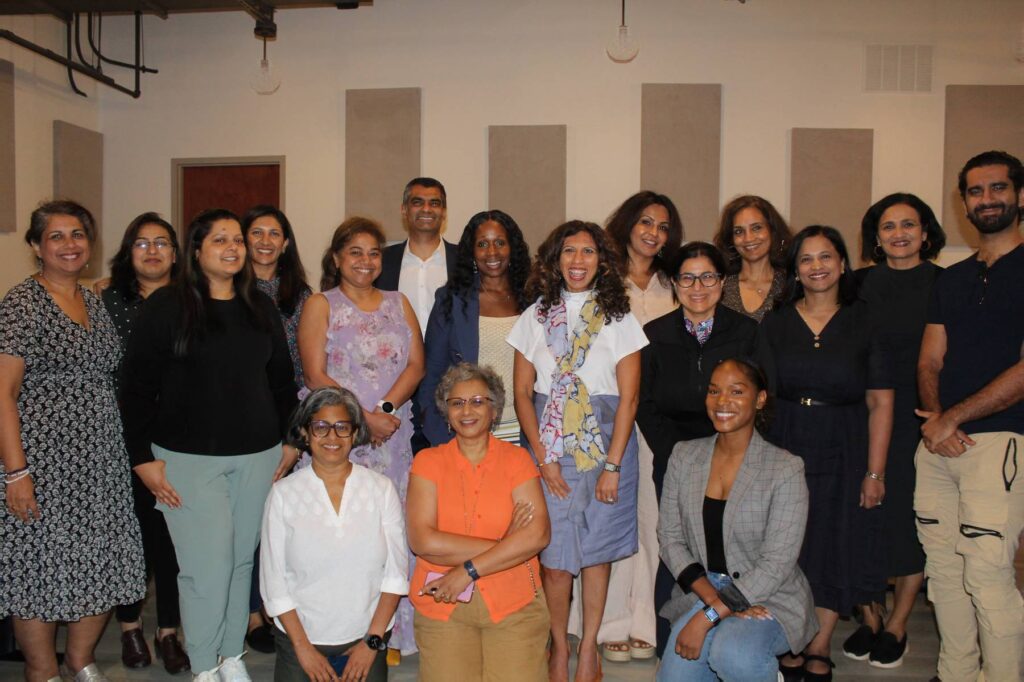
From Nashville Roots to NaanStop
Idnani began by reflecting on the Indian food scene of his youth. “Growing up in Nashville 30 years ago, there were maybe three Indian restaurants—total,” he said. “If a new one opened, it usually meant another would close. Only Indians were eating at Indian restaurants back then, and we were trying to understand why.”
The answer, he realized, was presentation. “You’d walk into a restaurant with a tuxedoed waiter, a six-page menu, and non-Indian diners often felt they needed a ‘brown friend’ to guide them through. So when we started NaanStop, we wanted to make Indian food more approachable—rice bowls, salads, and wraps—but always true to the way we ate at home. Everything is fresh, from scratch, and inspired by Mom’s cooking.”
For Idnani, this connection between food and family runs deep. “Feeding people was my mom’s love language. To be able to share that with the community—seeing someone take a bite and tell us how good it is, or bringing their friends back with them—that’s really special. It feels like we’re sharing her love with the world.”
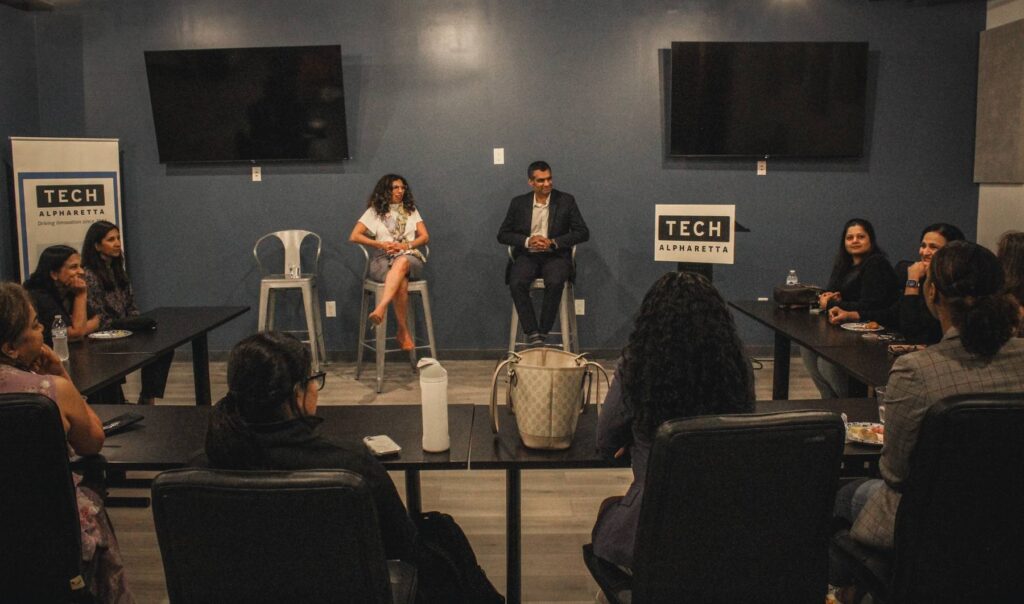
Food and Culture Together
NaanStop’s mission goes beyond feeding people—it seeks to educate and share culture. “We’ve had people walk into our restaurant, look at the menu, and walk right out,” Idnani said. “So we try to engage them—offer samples, tell them our story, explain dishes in ways they understand. For example, if someone asks about a samosa, we’ll compare it to an empanada. That makes it less intimidating.”
The restaurants also serve as cultural hubs. “At our Buckhead location, we held a Holi celebration with over 100 people and raised funds for Raksha. At Atlantic Station, we pushed our landlord to host a Diwali event—we had 600 people last year, and about 40% weren’t Indian. We had coloring books for kids that told the story of Diwali and Lord Rama’s exile. It’s about sharing food and culture with the broader community.”
From Food Truck to Restaurant Growth
NaanStop began as a food truck in Los Angeles while Idnani was in business school at USC. “Roy Choi had just launched Kogi BBQ, and it inspired us,” he said. “We ran NaanStop through entrepreneurship classes, wrote business plans, and even won ‘Best Business Plan.’”
The food truck offered a low-cost, low-risk way to test the concept. “We experimented constantly—changing menu items and prices daily with magnetic signs, parking at Trader Joe’s, Whole Foods, Kroger—to understand where our food resonated. That data gave us the confidence to open brick-and-mortar locations later.”
Scaling up to multiple locations brought new challenges. “With one restaurant, you can work 80 hours a week and keep it running. With two or three, you physically can’t be everywhere. That forced us to delegate, build systems, and create consistency—opening checklists, temperature logs, cleaning schedules. Entrepreneurs love big-picture ideas, but real leadership is in the details.”
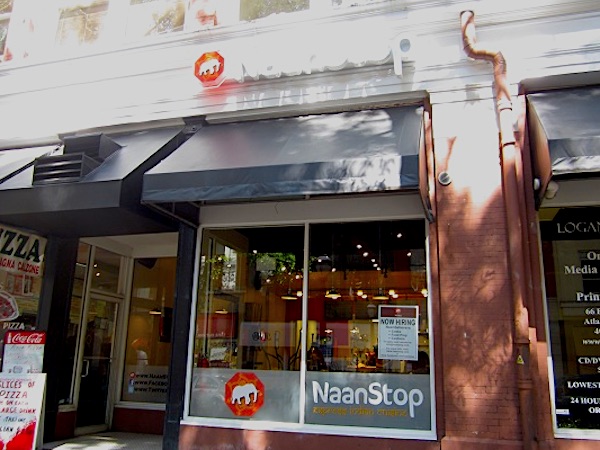
Challenges and Resilience
Entrepreneurship, Idnani noted, is rarely smooth. “Our first week with the food truck in L.A., my brother was driving to Santa Monica when the deep fryers caught fire. Imagine propane tanks, gasoline, and hot oil on a truck—you can’t just throw water on it. He tried throwing salt at it, but finally had to jump out for safety. Then, out of nowhere, a man ran down the street with two fire extinguishers. They put out the fire, but it took us a week to repair the truck. That experience taught us that success isn’t about avoiding challenges—it’s about how you respond to them.”
Support systems help him stay grounded. “First, having my brother as a partner—we balance each other out. Second, community. I’m part of Entrepreneurs’ Organization (EO), which is like group therapy for business owners. No matter your industry, everyone faces the same challenges—employees, cash flow, growth. Knowing you’re not alone is powerful.”
He also carries a personal reminder of balance. “One of my mentors told me to find my ‘gray rock’—your place of peace. For me, it used to be sitting on the cliffs overlooking the Pacific. Today, I carry a small gray stone, a wedding gift, to remind me to stay grounded.”
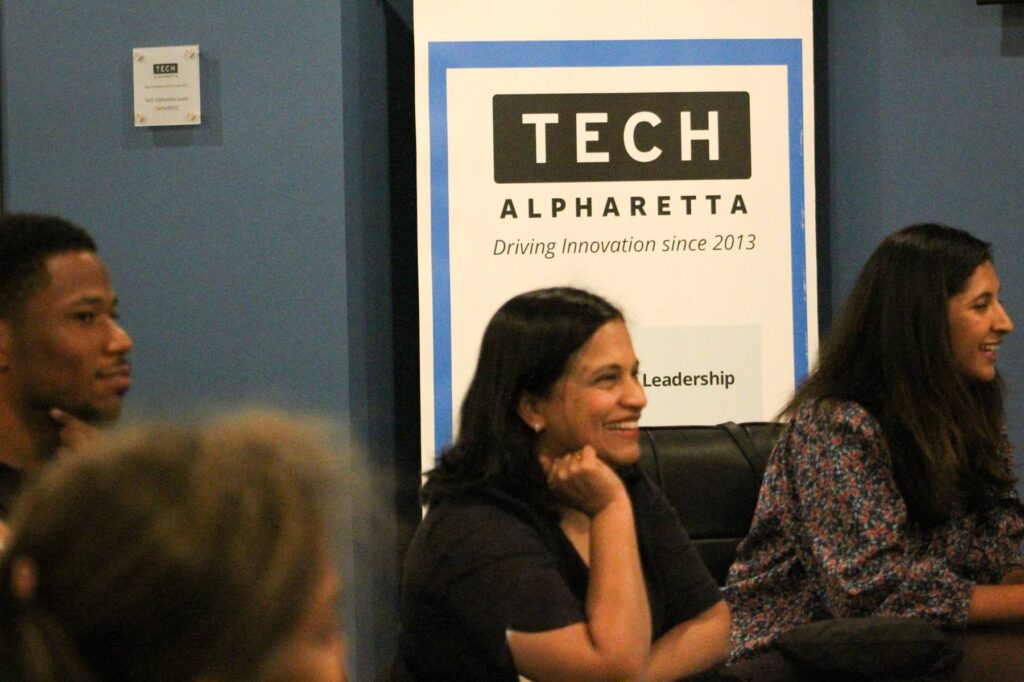
Leading with Humanity
Reflecting on his journey—from engineering at Georgia Tech to corporate roles at Delta and AT&T, to earning his MBA at USC—Idnani emphasized that leadership is about more than profit.
“It comes from conscious capitalism—the idea that business isn’t just about maximizing profit at all costs. A company is a living, breathing organism, not an ATM. Profit matters, but not at the expense of people.
“We try to lead with humanity—whether it’s providing tele-health benefits to our employees, pivoting during COVID to keep every team member employed, or partnering with local nonprofits. During the pandemic, we launched neighborhood meal pop-ups and donated a portion of every sale. Since then, we’ve raised over $50,000 for local organizations.
“At the end of the day, I tell my kids: if you’re a good person, success will follow.”
*Veena Rao is the founder and editor-in-chief of NRI Pulse and the author of Purple Lotus, a novel.



